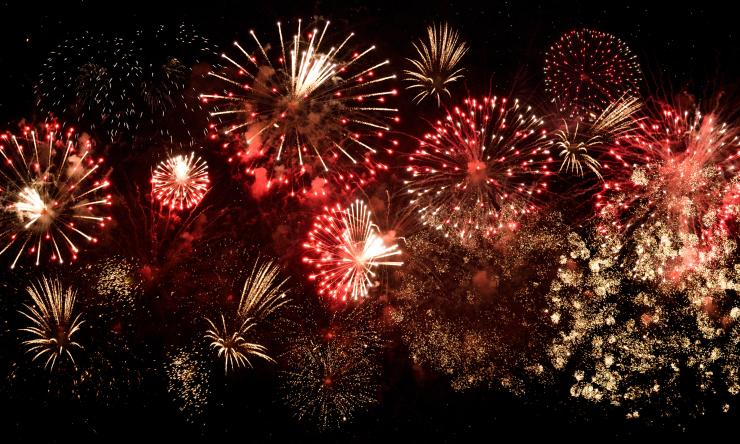Celebrate July 4th fireworks safely
If you’re celebrating Independence Day with fireworks this long weekend, be sure that your celebration is free from fireworks injuries or side effects. Baylor College of Medicine experts offer tips to protect yourself and others while using and observing fireworks.
Protect your hearing
According to Dr. Deyanira Gonzalez, audiologist in the Bobby R. Alford Department of Otolaryngology – Head and Neck Surgery at Baylor, exposure to loud noise like fireworks can result in permanent auditory damage including hearing loss and tinnitus, which is a ringing or buzzing in the ears. Fireworks can exceed 120-150 decibels in loudness if you’re standing close to them—louder than a jet plane taking off—which can result in immediate damage to your ears. Gonzalez offers these tips to protect your hearing:
-
Enjoy professional firework displays from a safe distance. If you are close to fireworks being lit up, wear hearing protection like earmuffs or earplugs.
-
Keep in mind that children’s ear canals are smaller than adult ear canals, and the sound of fireworks and firecrackers causes more damage to children’s hearing than adults. Children should always use hearing protection, even when watching professional displays from a distance.
-
If you are experiencing hearing loss or tinnitus after noise exposure, see an audiologist for a comprehensive hearing test.
Protect your lungs and airway
According to Dr. David Corry, professor of medicine in the section of immunology, allergy and rheumatology at Baylor, those suffering from allergies or asthma also should take precautions:
-
For people who suffer from severe allergies, the best option is to view fireworks remotely and not risk any exposure at all.
-
People who suffer from allergies or other respiratory conditions should premedicate with antihistamines or other disease controlling medications.
-
If you cannot avoid smoke exposure, position yourself upwind of the smoke.
-
Always have an N95 or equivalent mask on hand. If N95 is not available, use a makeshift bandana made from a T-shirt or similar cotton material, preferably wetted.
-
Have rescue medications on hand in case any smoke-induced symptoms occur from firework shows and campfires.
-
Backyard firework displays tend to expose people to more smoke than large firework displays. The more smoke present in an area, the more severe the respiratory symptoms become.
Protect yourself and those around you
Trauma surgeons at Baylor also offer some general safety tips when popping your own fireworks:
-
Know your city laws and be aware of burn bans.
-
Know your surroundings and have water and/or a fire extinguisher nearby in case of fire.
-
Choose an open area and flat surface, free of houses, vehicles, people, etc.
-
Protect children and pets by keeping them far away from fireworks.
-
After a firework is lit, move away from it quickly.
-
Never alter a firework or relight a firework that is thought to be a dud.
-
Never light a firework in your hand.
-
Never light fireworks while under the influence of alcohol or drugs.
-
Do not wear loose clothing.
-
Always have adult supervision.











